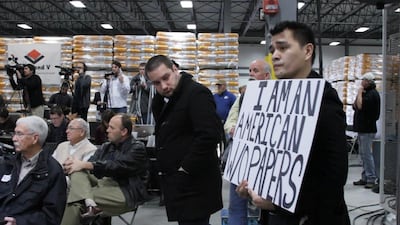Amid the applause and laughter there were a few tears when an autobiographical documentary by one of the best-known immigrants living in the United States illegally opened an independent film festival in his home country of the Philippines at the weekend.
The mother of the Pulitzer Prize-winning journalist and immigration activist Jose Antonio Vargas accepted a certificate of recognition on his behalf at the 10th Cinemalaya film festival in Manila on Friday night.
“It’s my third time to watch it, but I still can’t stop myself from crying,” said Emelie Salinas, Vargas’ 56-year-old mother, who attended the event with relatives, including her two other children.
Documented was written, directed and produced by Vargas, who has worked for The Huffington Post, the San Francisco Chronicle and the Philadelphia Daily News, and was part of a team from The Washington Post that won a Pulitzer in 2008 for its report on the 2007 Virginia Tech shootings.
The 90-minute film tells of his 1993 journey to America as a 12-year-old unaccompanied immigrant to join his grandparents and his painful 21-year separation from his mother.
In 2011, after wrestling with fear, he decided to reveal his secret and to campaign for a citizenship path for more than 11 million undocumented immigrants, 1.3 million of whom are Asians. Hundreds of thousands were brought to America as children and, like Vargas, are trapped by their illegal status.
Vargas, 33, founded the campaign Define American and travels all over the US highlighting the plight of immigrants who entered the country illegally. He also testified at a US congressional hearing last year on immigration reform.
In a taped message, he told the audience that because he did not have proper documents, he could not join them but said: “Here in America, where people like me are called illegal, this film is an act of civil disobedience.”
Filipinos have been tweeting congratulations to Vargas, with one calling the film “enlightening, entertaining, heartbreaking.”
* AP

